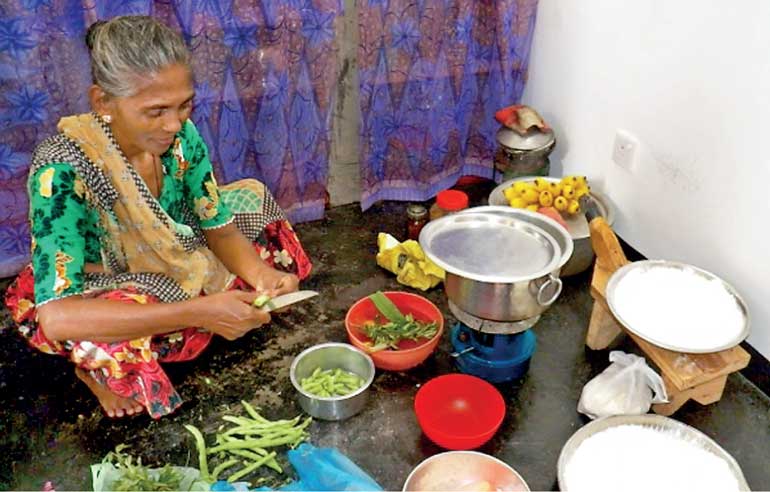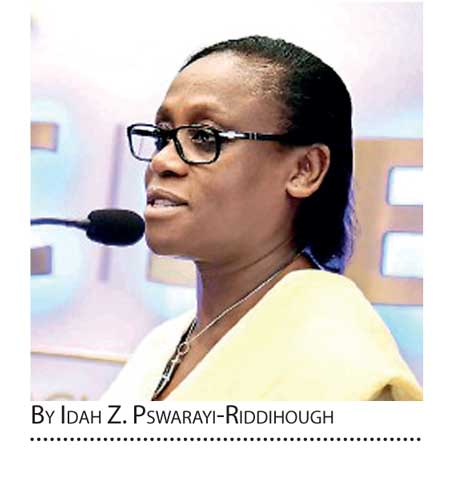Monday Feb 23, 2026
Monday Feb 23, 2026
Friday, 5 January 2018 00:00 - - {{hitsCtrl.values.hits}}

 blogs.worldbank.org: Holidays for me have always been about family and food. A time to relax, catch-up with loved ones and eat good food. When it’s our turn to cook, my husband and I take time to plan the menu. A central part of our meals are vegetables and fresh fruits but we have also learnt over the years that a good meal needs fresh ingredients, all procured as close to the preparation of the meal as possible.
blogs.worldbank.org: Holidays for me have always been about family and food. A time to relax, catch-up with loved ones and eat good food. When it’s our turn to cook, my husband and I take time to plan the menu. A central part of our meals are vegetables and fresh fruits but we have also learnt over the years that a good meal needs fresh ingredients, all procured as close to the preparation of the meal as possible.
Sri Lanka has not disappointed in its array of fruits and vegetables. I am still discovering the names of many; some of which I will never be able to pronounce for sure. Despite that, I love eating them!
Amongst my favourites are papaya, mangoes and kankun, the last for which I share a passion with my two pet turtles. But getting these vegetables and fruits from the same supplier on a constant basis is a challenge. Even common produce like onions, tomatoes, and cucumbers can be discoloured or squishy – not at all appetising or conducive for a salad or other such type of fresh dish.
The price, of course, is the same whatever the quality. Fresh produce can be expensive, and regularly buying a variety of fruits and vegetables does strain the budgets of many families in Sri Lanka. Needless to say, this shouldn’t be the case in a country with such rich soils and plentiful sunshine.
The question of access to fresh and healthy food goes beyond our holiday tables. According to the World Health Organisation, 1 in 5 premature deaths in Sri Lanka are due to a non-communicable disease (NCD) such as diabetes, cardiovascular disease or cancer.[1] Tobacco use, unhealthy diets, harmful use of alcohol and physical inactivity have all been identified as risk factors.
Dealing with the NCD epidemic, with its serious implications for public health and the economy, is a high priority for the Sri Lankan Government. The National Policy on Chronic NCD Prevention is designed to address risk factors, including obesity and unhealthy diets. The new Budget also included policy measures designed to reduce consumption of unhealthy sugar-sweetened beverages, while V2025 highlighted combatting NCDs as a priority.
An estimated 4.7 million people were considered undernourished in Sri Lanka in 2015.[2] Even as the island has seen rates of extreme poverty drop, poor dietary practices continue: people do not always understand what makes up a good diet; have no idea how to estimate the calories in their food or find financial constraints inhibit their access to nutritious food. But as with all our cultures there is a deep-rooted judgement of what food tastes good to us.
However, consumers are only one end of a long chain that begins with farmers. Sri Lanka’s agricultural sector needs to modernise. Low productivity is a big problem; and that of domestically grown food crops, including rice, has stagnated in recent years. As V2025 notes, “Government policies have exacerbated food insecurity with ad hoc policy changes of import duties and non-tariff barriers.” This in turn can lead to food insecurity and poverty.
Work on agricultural modernisation has begun with a distinct aim to make the sector more efficient and attractive as a modern business, more responsive to consumer demand, and more environmentally sustainable and resilient to climate change. This shift is crucial for income growth, poverty reduction, reducing inequality and better nutrition outcomes.
Private sector participation will prove key to modernising the agricultural sector and introducing modern value chains through trader-farmer contracts and contract grower systems. Robust and innovative Public-Private Partnerships (PPPs) can do much to support progress in the agricultural sector. These changes will be felt all the way along the supply chain.
Taken together, initiatives like improved storage and transportation, ICT to improve production and supply chains, and real-time monitoring can ensure Sri Lankan consumers can walk into their local market and find consistently healthy, fresh quality produce at a good price. Consumers must start by demanding better. Meantime, I will continue my quest for the produce I need; always having a plan B in my back pocket – burning calories as I criss-cross supermarkets and wet markets for that amazing array of colour and flavour that can only be found in a tropical country. Of course, many master chefs would probably say spontaneity is more exciting – true; but a balanced, healthy diet is better. And the faster I can get to the ingredients, the better.
As I have for many years, and as many families in Sri Lanka have also been doing, I will mark this holiday with family and food. From my table to yours, I wish you the very best for the holidays and a prosperous and joyful New Year! May we all continue the quest for quality produce that is fresh, crisp, and on time!
(The writer is the Sri Lanka Country Director of the World Bank.)
Footnotes
[1] WHO, Sri Lanka Profile http://www.who.int/beat-ncds/countries/sri-lanka/en/
[2] V2025 http://www.pmoffice.gov.lk/download/press/D00000000061_EN.pdf
(Source: /blogs.worldbank.org/endpovertyinsouthasia/quest-well-resourced-holiday-meal)